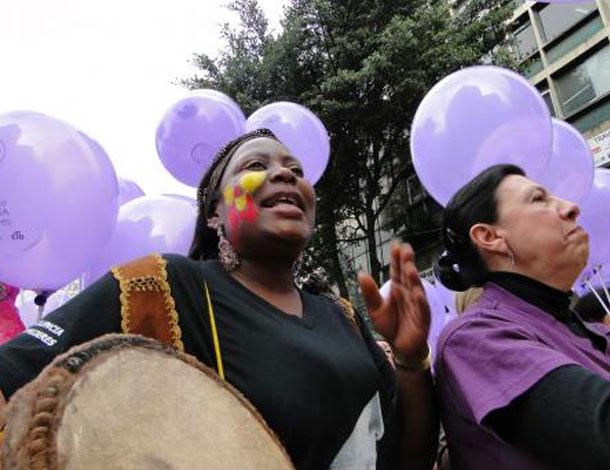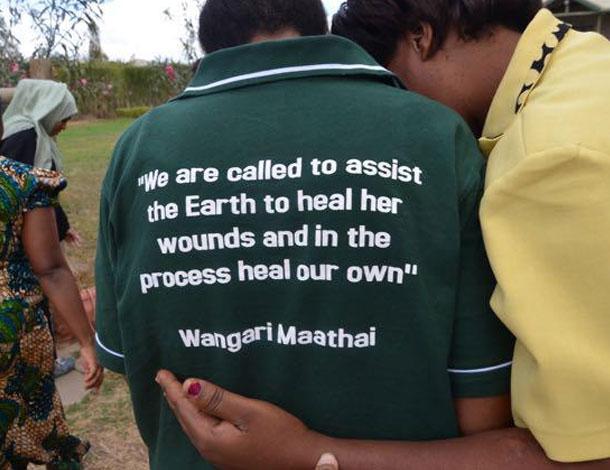Environmental degradation is deliberate, violent and patriarchal. From Turkey to Guatemala, women are on the frontlines of resistance.
“What is the state? We are the state! The state is the state thanks to us” said Havva Ana (Mother Eve), a 63-year old woman who, in July 2015, joined a demonstration to block the demolition of ancient forests in Rize, Turkey.
What Havva Ana meant was that the state depends on the people for its legitimacy – and that it must not prioritise short-term profit over their rights and wellbeing. The forests of Çamlıhemşin have, for hundreds of years, provided livelihoods and ancestral connection in the Black Sea region.
In the face of the destruction, she resisted bulldozers and security forces, forming a human chain with other protesters to block their advance. She confronted this violence with all she had: putting her body on the line. Police forcibly removed the protesters from the site, enabling the demolition to go ahead.
Havva Ana is a part of a larger ecosystem of women on the frontline of struggles to defend land, territory and livelihoods from violent models of “development” based on extractivism and the unconstrained commodification of nature.

This is dangerous work and human rights and environmental defenders have faced systematic attacks. Globally, economic and political elites are destroying the planet, violating international human rights standards and treaties to protect the rights of indigenous people.
In 2015, 156 killings were recorded by the Ung; 45% were of defenders of environmental, land and indigenous rights. For that same year, the NGO Global Witness documented killings of 185 human rights defenders across 16 countries, with Brazil, the Philippines and Colombia in the lead and many of those killed indigenous activists.
Berta Cáceres’ assassination last year in her home in Honduras, following years of activism to protect the Gualcarque River from the Agua Zarca hydroelectric project, is emblematic of reprisals against women who resist environmental destruction and powerful interests. Recent legal evidence indicates the Honduran government may have collaborated with US-trained paramilitary forces to murder her.
Many other attacks and killings likely go unreported.
Meanwhile, new research from AWID and the Women Human Rights Defenders International Coalition, based on consultations with women from Africa, Asia and Latin America, reveals clear gender-specific patterns of violence against women defending lands and communities – and looks at women's strategies for action and resistance to extractive industries and corporate power.
“When they threaten me, they say that they will kill me, but before they kill me they will rape me. They don’t say that to my male colleagues. These threats are very specific to indigenous women,” said Lolita Chavez, an indigenous woman human rights defender from Guatemala, in her testimony gathered as part of this research.
Women experience additional gender-specific threats...
Many human right defenders worldwide face criminalisation, stigmatisation, and violence – but women experience additional gender-specific threats.
For instance, stigmatisation may involve sexually-degrading terms or question a woman as a good mother; the economic marginalisation of women can make it difficult to raise money for bail if arrested; private security, paramilitary and police officers protecting corporate interests have used rape, sexual violence, and intimidation against women human rights defenders.
Importantly, women confronting extractive industries challenge not only corporate power, but also patriarchy – and they face repression on both fronts.
Visionary and creative resistance
Mirtha Váazquez, a woman human rights defender from Peru said: "For us, development has to do with the welfare and dignity of people and with the self-determination of how they want to live.”

Despite the violent treatment they too often face, women defenders of land, people and nature have been visionary and creative. Critically, our research also highlights successful and inspiring work of women confronting extractive industries and corporate power.
One such story is that of Aleta Baun, an indigenous woman from Indonesia who travelled village to village to organise local opposition to marble mining.
She faced arrests, beatings and death threats. But, with courage and determination she reached hundreds of people and together with other women spent an entire year occupying the entrance of a mining site, weaving traditional textiles. In 2010, after a year of peaceful protest, public pressure forced the companies to abandon their operations. In 2013, Baun won the Goldman Environmental Prize.
Around the world, women are demanding an end to corporate power destroying the planet for short-term gain and greed, and bringing forward visions of development committed to people and nature instead.
As Bonita Meyersfeld, law professor at the University of Witwatersrand, Johannesburg, put it: “A project that will generate economic benefits can only be called development if those profits are reinvested in the community. If not, we are talking about exploitation, not development”.
Havva Ana, Aleta Baun, Berta Caceres, and many thousands of other women around the world are resisting the equation of development with foreign investment and profit for the few. Instead, they offer a critical, progressive vision of development driven by self-determination, dignity and caring respect for nature. We must listen to them.
